Detractors frequently demonize the humble soybean. It stands alone in that regard, among its less maligned cousins: no one accuses pinto beans of causing cancer, black beans of causing man-boobs, or chickpeas of causing infertility and birth defects.
The soybean has been exploited on a larger scale, but it’s just a bean. Processed foods — with or without soy — can cause problems. GMO foods — soy or otherwise — can cause problems. But soy contains no magic disease demons, no secret toxins, no evil plan to take over the world. It is simply a legume. So relax, good friends, and rejoice: for soy is no devil! ‘Tis but a bean.
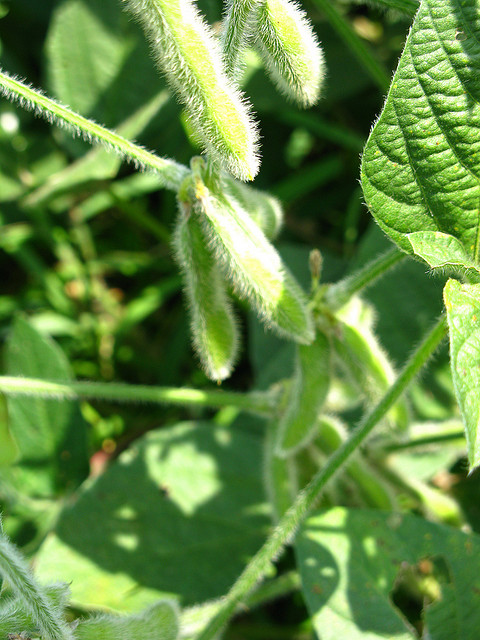
Especially for people just starting to explore plant-based eating, the many conflicting ideas and advice about soy foods floating around the Web-o-sphere can be confusing. Vegan chef and food writer Colleen Patrick-Goudreau offers this excellent advice, for critical assessment of information (and misinformation) about soy:
Please always ask a few questions whenever you hear that you should fear the soybean (or anything, for that matter):
- Who is providing this information?
- What do they have to gain directly?
- What do they have to gain indirectly?
Also, as you become more informed about soy and confident that it is not the harmful toxin its detractors make it out to be, it’s important to keep in mind the following:
- You don’t have to eat soy foods to be vegetarian. There are hundreds of thousands of edible plant species available if you don’t like or have a sensitivity to soy.
- Eat foods in their whole state as much as possible. Tofu, tempeh, miso, soy nuts, tamari/soy sauce all experience a limited amount of processing. But soy-based lunch-meats, burgers, cheeses, etc. all endure more processing. Don’t make these – or any processed foods – the foundation of your diet.
- Soy is neither miracle food nor is it poison. It is a bean that, like other plant foods, contains health-promoting nutrients.
- Be informed so you can help debunk the myths.
With That In Mind… Let’s Debunk!
So many nutritionists and physicians have written about the misinformation giving rise to the ‘soy controversy,’ I don’t think it’s necessary to reinvent the wheel here. Explore these excerpts, and follow the links, to resolve any soy fears that have taken root in your mind.
Allegation: The argument has been put forth that the phytoestrogens (plant estrogens) contained in soy promote the growth of cancers.
Reality: While a few studies have found that animals who are implanted with cancer cells and then fed soy protein isolates show increased growth of the cancer cells, the majority of the research shows soy to have an inhibitory effect on cancer growth. A recent meta-analysis of the literature relating to soy and cancers of the breast, colon, and prostate, found that individuals who consumed soy had a reduced risk of developing all three of these types of cancers. (Source: Badger TM, et al. Soy Protein Isolate and Protection Against Cancer. J Am Col Nutr 2005: 245(2): 146S-9S) …
Allegation: Soy consumption reduces thyroid function and/or causes thyroid cancer.
Reality: Some older studies of infants fed soy-based formula not fortified with iodine showed reduced thyroid functioning in those infants. Further research has shown that, in the absence of an iodine deficiency, soy does not reduce thyroid function. In relation to infants with congenital hypothyroidism, there is not yet complete consensus amongst the scientific community as to whether soy formula complicates this pre-existing condition. If you have an infant with congenital hypothyroidism, again, soliciting the advice of your doctor or health care provider would be a wise decision.
As far as thyroid cancer is concerned, large population-based studies show that soy not only does not increase the risk of thyroid cancer, it exerts a protective effect. (Sources: Bruce B, et al. Isoflavone supplements do not affect thyroid function in iodine-replete postmenopausal women. J Med Food 2003 Winter; 6(4): 309-16.; Haselkorn T, et al. Why Are Thyroid Cancer Rates So High in Southeast Asian Women Living in the United States? The Bay Area Thyroid Cancer Study. Cancer Epidemiology Biomarkers and Prev 2003 Feb; 12: 144-50) …
Allegation: Soy causes infertility, hormonal imbalances, hypospadias, and desmasculinization of males.
Reality: A few studies of the offspring of rodents who were fed soy isolates during pregnancy and lactation and rodents who were injected with soy isoflavones in infancy have found evidence of negative reproductive outcomes. However, there is a significant difference in the amount of estrogen to which fetal rats and fetal humans are normally exposed. Fetal rats are normally exposed to very small quantities of estrogen in utero whereas human fetuses are normally exposed to large quantities of estrogen in utero – this is without any soy consumption on the mother’s part…
Whatever the mechanism for the poor outcomes for the rodents, these results have not been replicated in humans. In fact, research on human infants exposed to soy in utero and during infancy has found no statistically significant differences in sexual development or reproductive health other than one study that found slightly longer menstrual periods in women who were fed soy formula as infants.
Clinical studies of infants fed soy formula, arguably the infants with the highest exposure to soy, have found no hormonal defects, no increase in infertility and normal sexual maturation [sources here].
From Jack Norris, R.D.:
Case-control studies on soy and breast cancer have been generally encouraging to those with soy in their diets, with about half associating soy with a lower risk for breast cancer and the other half showing no effects…
There have been twelve short-term (lasting one week to a year) clinical trials looking at the impact of soy on cognition, and all have shown soy to be helpful [sources here] or neutral [sources here]…
While I can understand the concern given that some infants are eating nothing but soy, the most important study to date, tracking adults who were fed soy formula as infants, provides assurance that there is no reason to be concerned about thyroid or reproductive function. (Source: Strom BL, Schinnar R, Ziegler EE, Barnhart KT, Sammel MD, Macones GA, Stallings VA, Drulis JM, Nelson SE, Hanson SA. Exposure to soy-based formula in infancy and endocrinological and reproductive outcomes in young adulthood. JAMA. 2001 Aug 15;286(7):807-14. Link)
From food writer John Robbins:
Some anti-soy crusaders, most notably the U.S. dairy industry, clearly have a financial agenda. In recent years, the dairy industry has been waging war particularly against soymilk. They have attempted to keep soy beverages from being included in the milk group in the Dietary Guidelines for Americans. They have sued the manufacturers of soy beverages for using the word milk, claiming that the dairy industry alone has a right to use the term. And they have tried to keep soy beverages from being sold alongside cow’s milk in the grocery aisles. A spokesperson for the National Milk Producers Federation made it clear why the industry was upset. “It is,” he said, “a clear attempt to compete with dairy products.”
Heaven forbid.
Mr. Robbins, congratulations: you have hit the nail right on the hammer!
Anti-soy marketing campaigns (either from dairy farmers’ organizations or from pro-meat/ anti-vegetarian folks like the Weston Price Foundation) generally represent far-from-unbiased, profit-driven goals. Those goals have nothing to do with scientific data, nothing to do with human health, and nothing to do with what I choose to put on my plate.
In Conclusion: Bean! (Not Marauding Devil)
Unless you happen to be taking certain thyroid medications or have a specific food allergy to soy, evidence clearly places this humble bean in the ‘yummy’ rather than ‘evil’ category of substances. When eaten in relatively whole forms rather than in processed foods — edamame, tempeh, soy curls, tofu, soy milk, soy flour, etc. — and eaten in reasonable amounts (don’t ONLY eat soy foods!), it causes no harm and in some cases confers particular benefits.
Also, be sure to buy organic soy if you want to avoid the problems GMO foods bring to the table: about 85% of soybeans produced in the US are genetically modified… but that’s an issue for another day!
The world of food is rich and diverse, and if you don’t enjoy soy foods it’s easy to be a vegan (or vegetarian or Meatless Monday Enthusiast or whatever) without them. But tofu bacon makes delicious wraps, sandwiches, and jerky; tempeh buffalo wings are scrumptious; and soy curls make amazing camp food, since they’re nutritious, quick-cooking and tremendously versatile.
Related Post: Processed Food vs. Whole Foods: Where does Tofu Stand?
Why cheat yourself out of a whole category of tasty plant-based foods, for no reason?
Beans are good food, and soy is no exception. So do the research, dismiss the unscientific anti-soy marketing efforts, and embrace the yum of the lovely soybean!
[Or not, you know, as you wish — but choose from a position of knowledge, not myth and misinformation: that is my best advice, on this or any question!]
Image credit: Creative Commons photo by davedehetre.






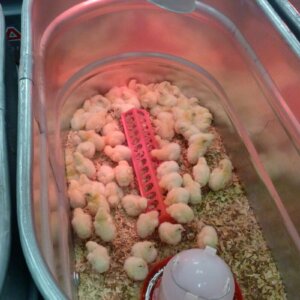





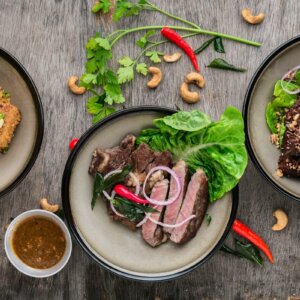

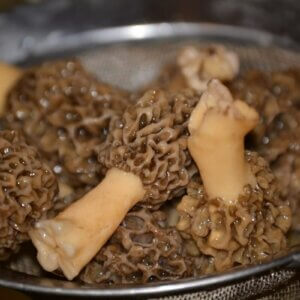
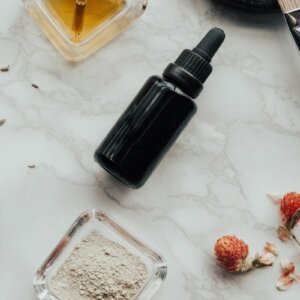





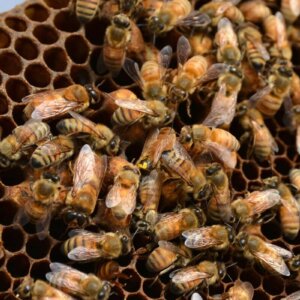

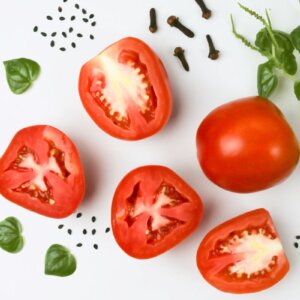
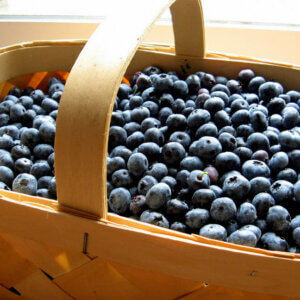





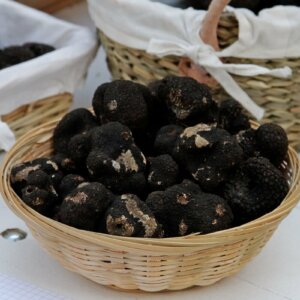






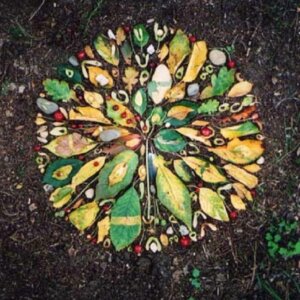

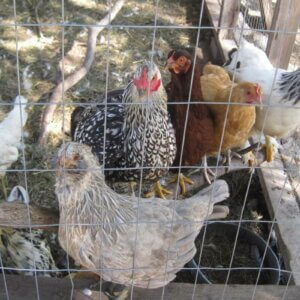
YAY!! I can drink my chocolate soymilk again!! (Not that I ever stopped, I just worried that I was doing irrepairable harm to my thyroid and/or ovaries with every carton!) Thank you ma’am! Great article!
How cool is this: I sat down to tag this article to you, logged in, and here you are… Way to be up-to-date on your reading assignments! lol
Ms. Sitton sets me to thinking about the sociology of knowledge. As always, “Follow the money.” It’s hardly a concidence that such a huge proportion of anti-soy research and publicity (a.k.a. propaganda) is sponsored/funded by people who have a vested interest in the outcome of the debate. Much (if nto most) of the anti-soy research is in service to an economic agenda—to promote the financial interests of corporations with a heavy investment in dairy or livestock. As this article makes clear, a healthy dose of scepticism is appropriate.
I love the term ‘sociology of knowledge’… With your permission, I’ll be borrowing that! Thanks! 🙂
Look for organic soybeans. Most soybean plants are genetically modified to carry the genes of toxins, allowing them to be bathed in dangerous herbicides, doing incredible environmental destruction. Many are also processed with a carcinogenic substance, so check that process as well.
Agreed! To me soy is on the ‘organic must-shop’ list… and I think you’re refering to hexane, found in some processed soy-derived food additives. Sticking with organic, minimally-processed soy foods like tofu, tempeh, soy curls, edamame etc. is definitely the way to go!
Thanks for reading, and for sharing your thoughts! 🙂
Thank you for such an informative article! This will definitely be bookmarked for future reference to man-boob concerns 😉 J/K but really lots of great links and information you rock! <3
Thanks, Amy! 🙂